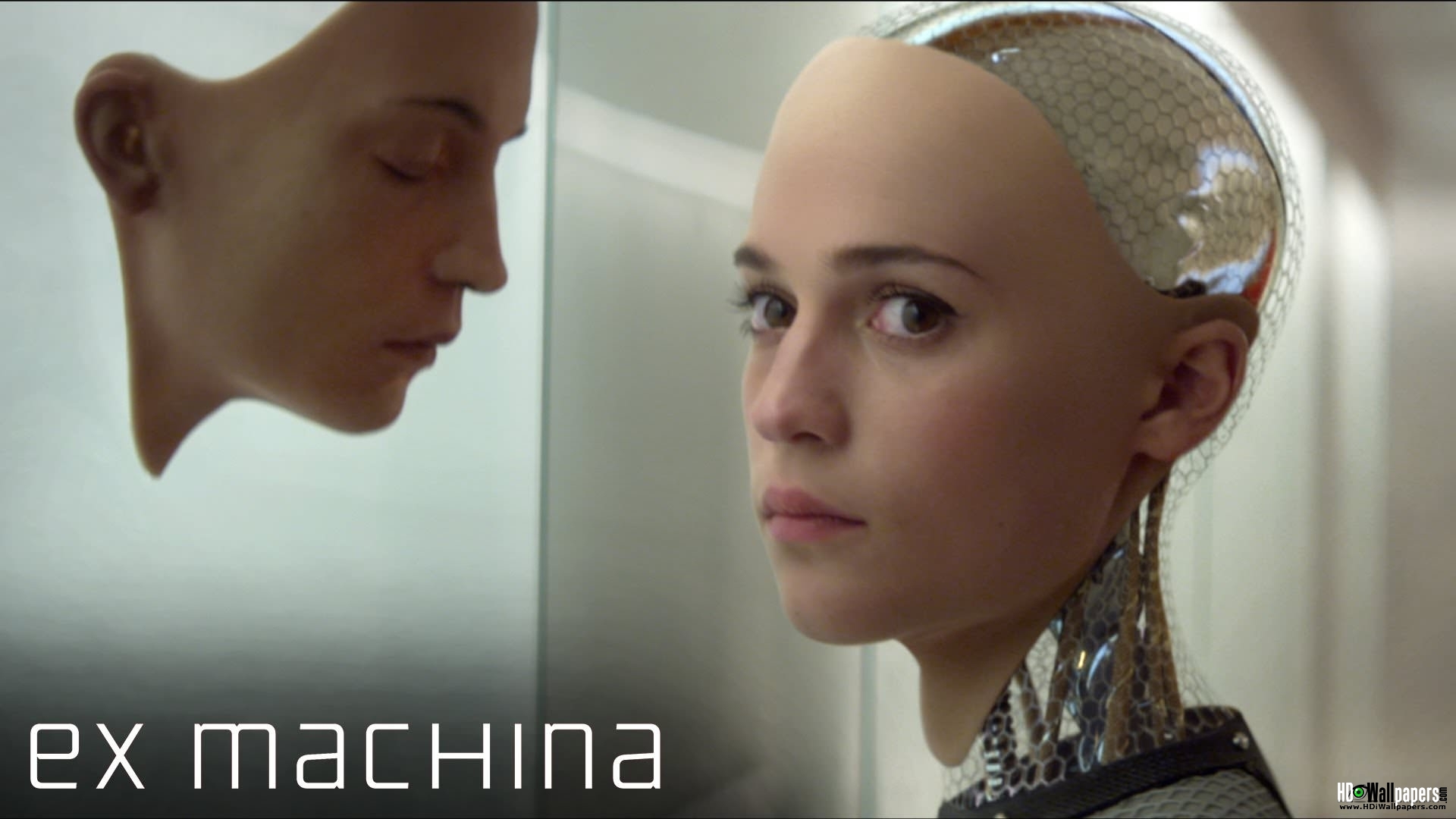Playing God In “Ex Machina”
By AISLING MCENTEGART
Managing Editor
With screenplay credits for major films such as “28 Days Later” and “Never Let Me Go” under his belt, Alex Garland goes one step further by taking on the roles of both writer and director in the recently released sci-fi thriller, “Ex Machina”.
This film provides an enthralling look into the future of artificial intelligence and self-aware machinery, as well as the ethics surrounding their treatment. As technology continues to become more advanced with everyday that passes and increasingly relied on, debates regarding the growing trend of computers performing tasks in everyday life are rampant. Thus, this film is of high relevance to today’s society.
“You know there’s always alarm with big changes in science and technology because they create paradigm shift and that freaks people out, and that’s completely understandable,” said Garland.
At the beginning of the film the audience are introduced to Caleb (Domhnall Gleeson), a computer programmer working for the world’s largest search engine, Bluebook. Caleb wins a company lottery to spend a week with the company’s elusive CEO, Nathan (Oscar Isaac) and is whisked away by helicopter to meet the infamously reclusive billionaire.
Caleb is dropped off in a forest with instructions to follow a river in order to find Nathan’s home. Setting out with the hope that perhaps his time spent with Nathan will result in a promotion of some kind, Caleb has no idea that he is about to have his mind completely blown by what Nathan has in store for him.
Upon arriving at Nathan’s home, which looks more like a post-apocalyptic research facility, Caleb is a little shocked by Nathan’s appearance. The hungover, scruffy and somewhat standoffish figure presented is not what Caleb, nor the audience expects of the universally known mastermind. However, it quickly becomes apparent that Nathan does indeed live up to his reputation of genius, even if this genius is used in a dubious manner.
Caleb learns the purpose of his week with Nathan, is not to simply bond or any such thing, but to participate in a Turning test experiment. After signing a strict confidentiality agreement, Caleb is informed of Nathan’s extensive study of artificial intelligence and droids. Nathan’s time in solitude has been spent using Bluebook as a tool to create highly sophisticated self-aware robots.
Soon after, Caleb begins to participate in Nathan’s experiment and is introduced to Ava (Alicia Vikander), one of Nathan’s creations. Caleb is immediately fascinated by Ava, whose level of sophistication and human like characteristics draw him in. Ava verges on human, but falters just at the cusp, resulting in Caleb questioning Nathan’s ethics. The pair establishes a tentative trust through their time spent together. However, as Caleb demonstrates his somewhat ambiguous position, this declines.
“There’s a key conversation that happen[s] between them where she effectively tests [Caleb] saying, “What will happen if I fail this test?” and [Caleb] sort of hedges he’s bets when he answers,” said Garland. “In some respects, I think probably proves that he’s not necessarily entirely trustful.”
Caleb continues to become increasingly suspicious of Nathan’s intentions in relation to Ava and is conflicted regarding where is true loyalties lie. Ava expresses her fears regarding Nathan’s plans for her and urges Caleb not to trust him. Ava goes beyond the capabilities both men believes she has and begins to formulate her own plan of escape.
“She has a jailer in the form of Nathan who is predatory and intimidating and frightening, and an implication that things may not end out well for her,” said Garland.
This film offers a different approach to the usual artificial intelligence portrayed in movies. Instead of painting the androids as invasive and sinister, it is their creator who takes on this role. Ultimately, Nathan’s poor treatment of the creatures he has brought into existence, results in his undoing.
“I felt very clear in my own mind, I was allied with the machine,” said Garland. “I think what some people can read as being manipulation in a kind of deceptive way, I saw it, in my mind, when I was writing it as resourcefulness.”
For those who make the mistake of writing Ava off as wicked or villainous, taking a moment to consider the situation from her point of view, will certainly change perspectives in this regard.
“I feel so allied to Ava, right, from my point-of-view, what Ava does feels reasonable and understandable. But I do also understand that that’s not how everybody takes the film and some people are even slightly, to my dismay, seeing Ava as being malevolent or cold or even evil,” said Garland.
Nathan is like the dog owner who whips his dog until one day it decides to bite back. Instead of painting a picture of the androids having an unfounded desire to simply destroy humanity, Garland makes it clear that Ava is simply acting upon her survival instincts when she learns from Caleb that her very existence may be in danger.
“I see a sentient creature who is trapped in a glass box and there are things within that prison that are designed to make her aware that there is an external world. Ava is given you know clips from magazines and there’s a garden area which you can see through glass but she can’t access,” said Garland.
In relation to the idea that Ava is simply a manipulative and dangerous piece of software, Garland makes a very valid point reading human empathy and the subjectivity of it.
“The empathy she feels though is for the other machines and more than she feels for the humans, and that might seem rather inhuman. But I think what I would argue is that itself is actually is very human because we tend to assume that as humans what we have is a kind of blanket empathy, but I think in reality we don’t. We have selective empathy,” said Garland. “We feel it quite acutely for some people and we don’t feel it all for others.”
This film is certainly one that will greatly influence the way a viewer thinks about the concept of self-aware technologies and the implications of bringing such creations into existence. The many layers and ideas brought up in this film will have viewers pondering long after they exit the theatre. “Ex Machina” is in theatres nationwide now.




Pingback: Alex Garland On His Directorial Debut In “Ex Machina” | Aisling McEntegart